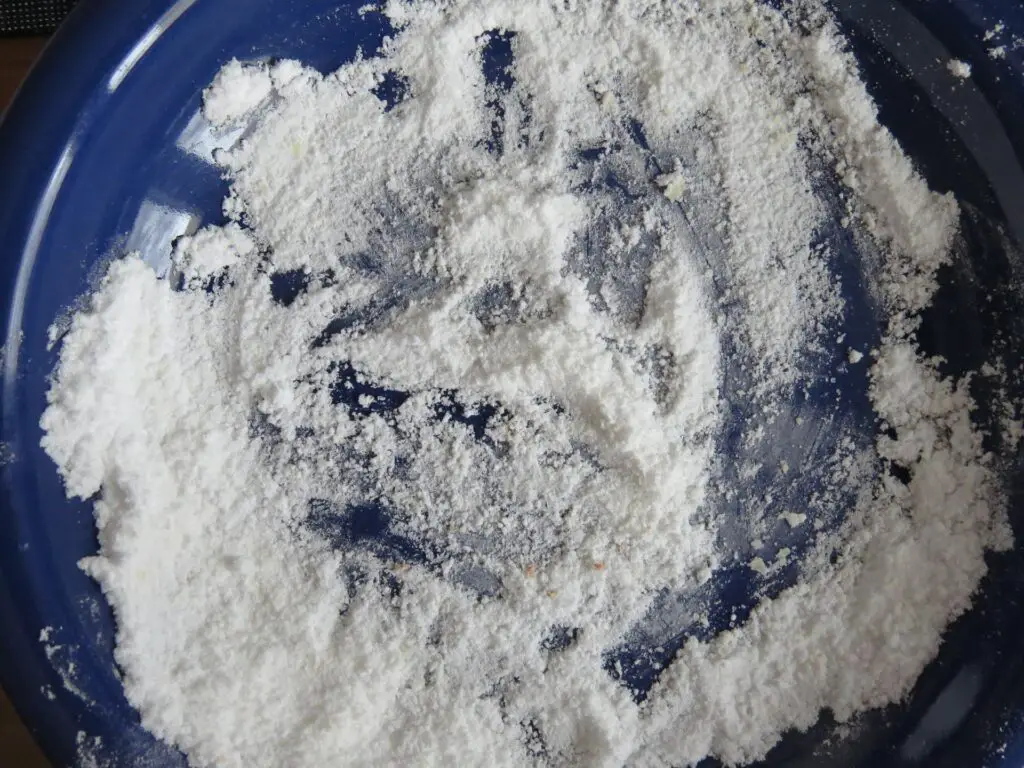If you are following a low FODMAP diet, you may be wondering if erythritol is low FODMAP. Erythritol is a sugar alcohol that is found in many foods and drinks. It is often used as a sugar substitute because it has a very low-calorie count and does not affect blood sugar levels and has similar benefits to almonds. In this blog post, we will discuss whether or not erythritol is low in FODMAP and provide some tips for incorporating it into your diet.
Is Erythritol Low FODMAP?
The short answer is yes, erythritol is low FODMAP. This means that it is safe for people with IBS to consume and will not trigger any symptoms. However, there are a few things to keep in mind when incorporating erythritol into your diet.
First, erythritol is a sugar alcohol. This means that it can cause bloating, gas, and diarrhea in some people if consumed in large quantities. To avoid these side effects, it is important to start with a small amount and increase gradually as needed.

How To Prepare Erythritol Low FODMAP?
The Erythritol Preparation method is very simple and quite easy to follow. Let’s discussed the preparation method in detail.
Ingredients
- Erythritol
- Water
Method
The method to prepare erythritol is simple. Just add erythritol to water and stir until dissolved. You can also add erythritol to food as a sweetener.
Start with a small amount of erythritol and increase as needed.
- If you are taking erythritol as a supplement, start with a small amount and increase as needed.
- If you experience bloating, gas, or diarrhea after consuming erythritol, reduce the amount you consume.
Can You Eat Erythritol Low FODMAP Diet?
Yes, you can eat erythritol on a low FODMAP diet. This is because erythritol is a sugar alcohol and is not broken down by gut bacteria. This means that it will not trigger any symptoms in people with IBS. Also, you can Erythritol in your dinner diets.
There are a few things to keep in mind when incorporating erythritol into your diet. First, erythritol is a sugar alcohol. This means that it can cause bloating, gas, and diarrhea in some people if consumed in large quantities.
It also doesn’t cause any tooth decay because erythritol is not metabolized by bacteria in the mouth.
To avoid these side effects, it is important to start with a small amount and increase gradually as needed. You can also add erythritol to food or take it as a supplement. If you experience any bloating, gas, or diarrhea after consuming erythritol, reduce the amount you consume.
Where Is Erythritol Low FODMAP Found?
Erythritol is found in many foods and drinks. It is often used as a sugar substitute because it has a very low-calorie count and does not affect blood sugar levels.
Erythritol can also be found in some supplements. This is a great option for people who are sensitive to the taste of erythritol or who do not like the texture of erythritol in food.
What Are The Benefits Of Erythritol?
Erythritol is a great alternative to sugar for people with IBS. This is because it is a sugar alcohol and is not broken down by gut bacteria. This can wear down tooth enamel.
Erythritol is also a great alternative to sugar for people who are trying to lose weight.
How Much Erythritol Should You Eat?
If your weight is under 120 pounds, you should consume no more than 12 grams of erythritol per day. If your weight is between 121 and 180 pounds, you should consume no more than 18 grams of erythritol per day. And finally, if your weight is over 180 pounds, you should consume no more than 24 grams of erythritol per day.
What Are The Side Effects Of Erythritol?
The most common side effect of erythritol is bloating. This is because it is a sugar alcohol and is not broken down by gut bacteria. Additionally, erythritol can cause gas and diarrhea in some people if consumed in large quantities.
It may also cause headaches in some people. If you experience any of these side effects, it is important to start with a small amount and increase gradually as needed.

How Do I know If Erythritol Is Right For Me?
If you are following a low FODMAP diet for lunch, dinner, or breakfast, erythritol is a great alternative to sugar. This is because it is a sugar alcohol and is not broken down by gut bacteria. Additionally, erythritol has a very low-calorie count and does not affect blood sugar levels.
How Much Erythritol Should I Consume?
There is no one-size-fits-all answer to this question. The best way to incorporate erythritol into your diet will vary depending on your individual preferences and needs. However, it is important to start with a small amount and increase gradually as needed.
Most people can handle up to 50 grams of erythritol per day without experiencing any side effects.
Erythritol is a great alternative to sugar for people with IBS. This is because it is a sugar alcohol and is not broken down by gut bacteria. Additionally, erythritol has a very low-calorie count and does not affect blood sugar levels.
While erythritol is a great alternative to sugar, there are a few things to keep in mind when incorporating it into your diet.
Uses Of Erythritol FODMAP
There are a few different ways that you can use erythritol. The most important thing is to start with a small amount and increase as needed.
1. Add It To The Food
You can add erythritol to food as a sweetener. This is a great way to get the benefits of erythritol without experiencing any side effects.
2. Drink It
You can also drink erythritol as a beverage. This is a great option for people who do not like the taste of erythritol in food.
3. Take It As a Supplement
If you are having trouble incorporating erythritol into your diet, you can take it as a supplement. This is a great option for people who are sensitive to the taste of erythritol or who do not like the texture of erythritol in food.
Conclusion
The most important thing is to start with a small amount and increase as needed. Additionally, erythritol can cause gas and diarrhea in some people if consumed in large quantities. If you experience any of these side effects, it is important to start with a small amount and increase gradually as needed.
2
Leave a Reply